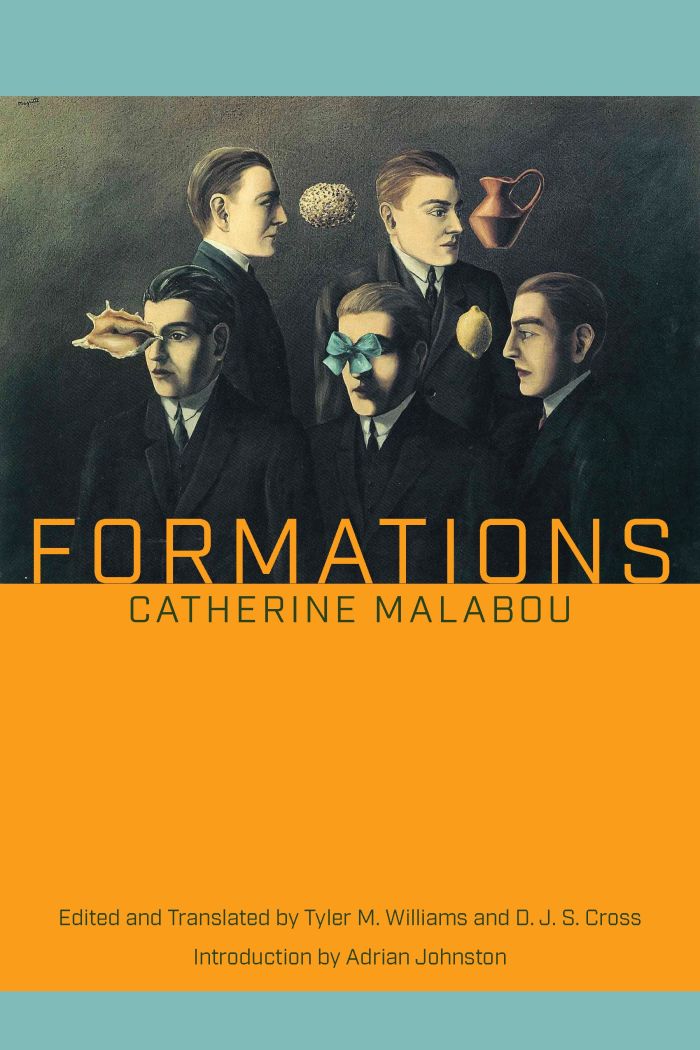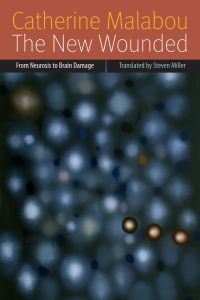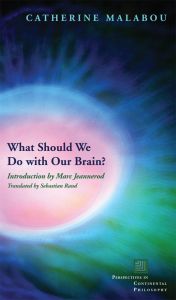Formations

This book can be opened with

Catherine Malabou’s elaboration of the concept of plasticity has made her one of the most innovative philosophers working today. Formations collects eighteen of Malabou’s early writings, spanning 1986 to 2003, within which her initial articulations of plasticity take shape.
Though Malabou might be most famous for bringing neurobiological discourse into conversation with continental philosophy, she has always maintained, as the essays in Formation make clear, that “plasticity” circulates dynamically within the history of philosophy. Across readings of Hegel, Marx, Derrida, Rousseau, Heidegger, Ricoeur, Plato, Aristotle, and many others, these essays highlight the deep entrenchment of plasticity within the history of philosophy.
Formations puts on full display Malabou’s associations with deconstruction, her negotiations with structuralism, her interdisciplinary investments in philosophical calibrations of literature, and the unique form of dialectics that will shape her later thought. A critical introduction by Adrian Johnston situates these essays within the contexts of French Hegelianism and Marxism, showing both the continuity of these early essays with Malabou’s later work as well as their singular contributions to the development of these still-relevant critical fields. An afterword by Malabou herself offers a biographical and bibliographic retrospective to these essays.
Never just an archive of precursory traces of a later project, Formations exhibits the plastic metamorphosis of Malabou’s own thought by revealing any oeuvre, including any translation or editorial arrangement of that oeuvre, to be a product constituted by its ongoing formations. In this sense, the title reflects one of the most enduring features of Malabou’s thought: “formation” stands doubly for the rigidity of an identity and the processes by which that identity changes and takes shape.
“Formations offers a striking glimpse into the emergence of a singular, transformative, and genuinely philosophical voice—one that continues to reshape our understanding of form, meaning, and life itself.”—Alenka Zupančič, author of Let Them Rot: Antigone’s Parallax
“One of France’s foremost living philosophers, Malabou stands as a transitional figure in the history of philosophy in the late twentieth and early twenty-first centuries, a bridge from the exceptional group of post–May ’68 thinkers. Formations provides a window into the importance of literature to her praxis of philosophy.”—Emily Apter, New York University
Catherine Malabou is Professor of Comparative Literature at the University of California, Irvine, and Visiting Professor of Modern European Philosophy at Kingston University. Her many books include Stop Thief! Anarchism and Philosophy (Polity, 2023), Pleasure Erased: The Clitoris Unthought (Polity, 2022), The Ontology of the Accident: An Essay on Destructive Plasticity (Polity, 2012), The New Wounded: From Neurosis to Brain Damage (Fordham, 2012), and What Should We Do with Our Brain? (Fordham, 2008).
Tyler M. Williams (Edited & Translated By)
Tyler M. Williams is Associate Professor of English, Humanities, and Philosophy at Midwestern State University. He is editor of Catherine Malabou’s Plasticity: The Promise of Explosion (Edinburgh, 2022).
D. J. S. Cross (Edited & Translated By)
D. J. S. Cross is Assistant Professor of Translation at the University of North Carolina at Charlotte. He is the author of Deleuze and the Problem of Affect (Edinburgh, 2021).
Adrian Johnston (Introducer)
Adrian Johnston is Distinguished Professor of Philosophy at the University of New Mexico. His most recent book is Infinite Greed: The Inhuman Selfishness of Capital (Columbia, 2024).





